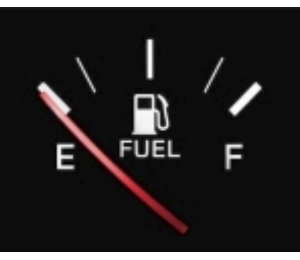There are many things that go together, and many things that do not.
Summer and schedules — don’t. Summertime is renowned for freedom and fun. I encourage families to take advantage of the countless opportunities the Oregon summer offers, such as
family vacations, camps, and outdoor activities including hiking, biking, swimming, and playing
at the park.
I also believe schedules are important, even during this season. Regular routines embedded
into our daily schedules allow for predictability. Predictability promotes a sense of order,
familiarity.
As a parent of a child diagnosed with ADHD, you may be thinking:
“My child is hyperactive, impulsive, and actually likes spontaneity.”
Or
“The mundanity and boredom is my child’s worst nightmare!”
While this may be true, it is also true that children with ADHD (and without ADHD) benefit from
predictability. Predictability promotes a sense of order, familiarity, and safety. As a result, the
brain, more specifically its executive function system, is not highly activated; meaning the brain
does not have to expend much energy or effort to organize thoughts, feelings, and actions.
The inverse is also true: unpredictability requires the brain to expend more energy or effort to
organize thoughts, feelings, and actions.
To simplify this idea, the analogy of a gas tank is often used to demonstrate how the brain’s
executive function system operates. In a day, the tank has a certain amount of fuel, which is
dependent upon a number of factors including sleep, nutrition, stress, genetics, and more.
Throughout the day fuel is being used. Predictability established by schedules and routines
require minimal fuel, whereas unpredictability, such as anything new and/or different, requires
much more fuel.

How much “fuel” is being used? Maybe this summer you have noticed that your child seems
more emotional, easily irritated, or overwhelmed? Their tank may be nearing empty, and they
could benefit from conserving fuel and refueling. A way to conserve fuel may be to (re)introduce
some schedules and routines. Below is a short list of ideas to consider:
- Consistent bedtime and wakeup time. It is known that sleep is important for health and
wellness, and is even more so important for children and adolescents. Oftentimes, bedtime tends to be a little bit later during the summer as a result of the longer days. A consistent and reasonable bedtime may result in best outcomes. Wakeup time seems to vary significantly by age, whether you have a child who wakes up at the crack of dawn or an adolescent who can sleep until noon. Again, consistent and reasonable wakeup times may result in best outcomes. - Morning routine. With no school during the summer, most children are not racing out
the door in the morning. As a result, it is common for morning routines to slip, including
those around age-appropriate self-care (dental care, dressing). If you notice this may be
the case, fine-tuning the first ten minutes of the day will help conserve fuel. It may be as
simple as a 5-10 list of tasks to complete, depending on your child’s age and ability. Start
with fewer tasks and then add more over time. Visuals can also be used, such as simple
drawings.- Morning Routine:
- Go to the bathroom
- Brush teeth
- Brush hair
- Get dressed
- Breakfast/medication (?)
- Morning Routine:
- Screen Time. Screen time is often a contentious topic with children and adolescents,
and understandably so, is a conversation parents are usually not eager to have with
them. During the summer, screen time tends to increase amongst children and
adolescents as they have easier access to screens and usually experience more
boredom. They play video games, watch YouTube or TV, or scroll through social media. If
you notice your child is engaging in more screen time than you feel comfortable with, it
may be helpful to not only revisit family expectations or rules around screen time, but this
is also an opportunity to provide some more structure and support for your child. Together
brainstorm a list of ideas for combating boredom. This will look different depending on
your child’s age and interests. Some ideas may be: take the dog for a walk, take the
neighbor’s dog for a walk, go to the park, do an art project.
Again, this is a short list of ideas to consider. Hopefully it sparks some ideas for your child.
Because really, summer is an excellent time to have a little extra fun and sometimes that can be
challenging to do when your child’s fuel may be nearing empty. Hopefully some small changes
can make a noticeable difference! Enjoy!
Sarah Moyer
Professional Counselor Associate
ADHD Child & Family Services

